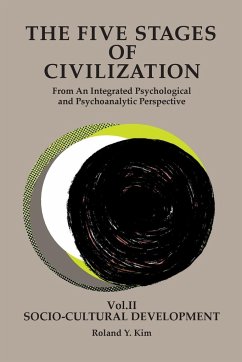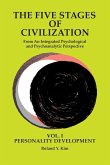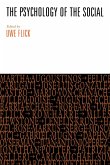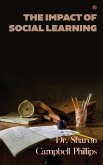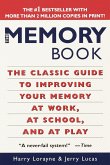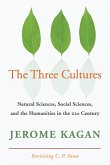Have evolutionists been right about predicting our culture to move toward a more mature and violence-free society? Then when and how soon can we expect to arrive at the utopia? For many decades, scholars of various fields have attempted to find a unified theory that can explain the developmental path of our civilization. The present author, trained in clinical psychology and social sciences, embarked on this grand project of finding the truth about our civilization. This volume explores a compelling way to explain the movement of our civilization, which confronts us with an alternative reality to the evolutionary view. It shows that changes in human society and culture as the collection of individual personalities are not an automatic biological or evolutionary process but rather a process requiring conscious human effort and proactive decision-making by individuals, parents, leaders, and policymakers. Dr. Roland Kim, a clinical psychologist/researcher, tries to provide the 5-Stage answers to the following crucial questions that help to understand the development of our civilization: What is the best predictor of our civilization's future path, and what real-life evidence can we find to prove if civilization results from evolution or a conscious choice? What are the prevailing emotions and typical adaptive behaviors of a socio-culture as a group of individuals at various stages of development? What are the typical business motivations at various stages among power, achievement, affiliation, individual happiness, and collaboration? What will be the next shape of our economic system, capitalism, in the future? Why are the combined roles of economic and political systems critical toward successful democratization? How do we understand political and legal justice in the developmental context? What is the developmental stage of the leadership styles we observe in our culture, and what are preferred by a particular stage of socio-cultural development? What are the shapes of violence, war, non-violent strategy according to various stages of socio-cultural development? How do we understand gender roles, racism/prejudice, and scapegoating in a developmental context? Which is the better question? Which religion one has ? vs. In what stage is one's faith? What are the psychological motivations behind artistic creativity at various stages of emotional/socio-cultural development? What are its adaptive functions? How do the movies and dramas of different cultures portray their characters and themes? Using the answers to these questions as a compass, parents, leaders, and policymakers will find the wisdom of first embracing their culture, without judgment, and find the direction to navigate it for the better future of our civilization.
Hinweis: Dieser Artikel kann nur an eine deutsche Lieferadresse ausgeliefert werden.
Hinweis: Dieser Artikel kann nur an eine deutsche Lieferadresse ausgeliefert werden.

